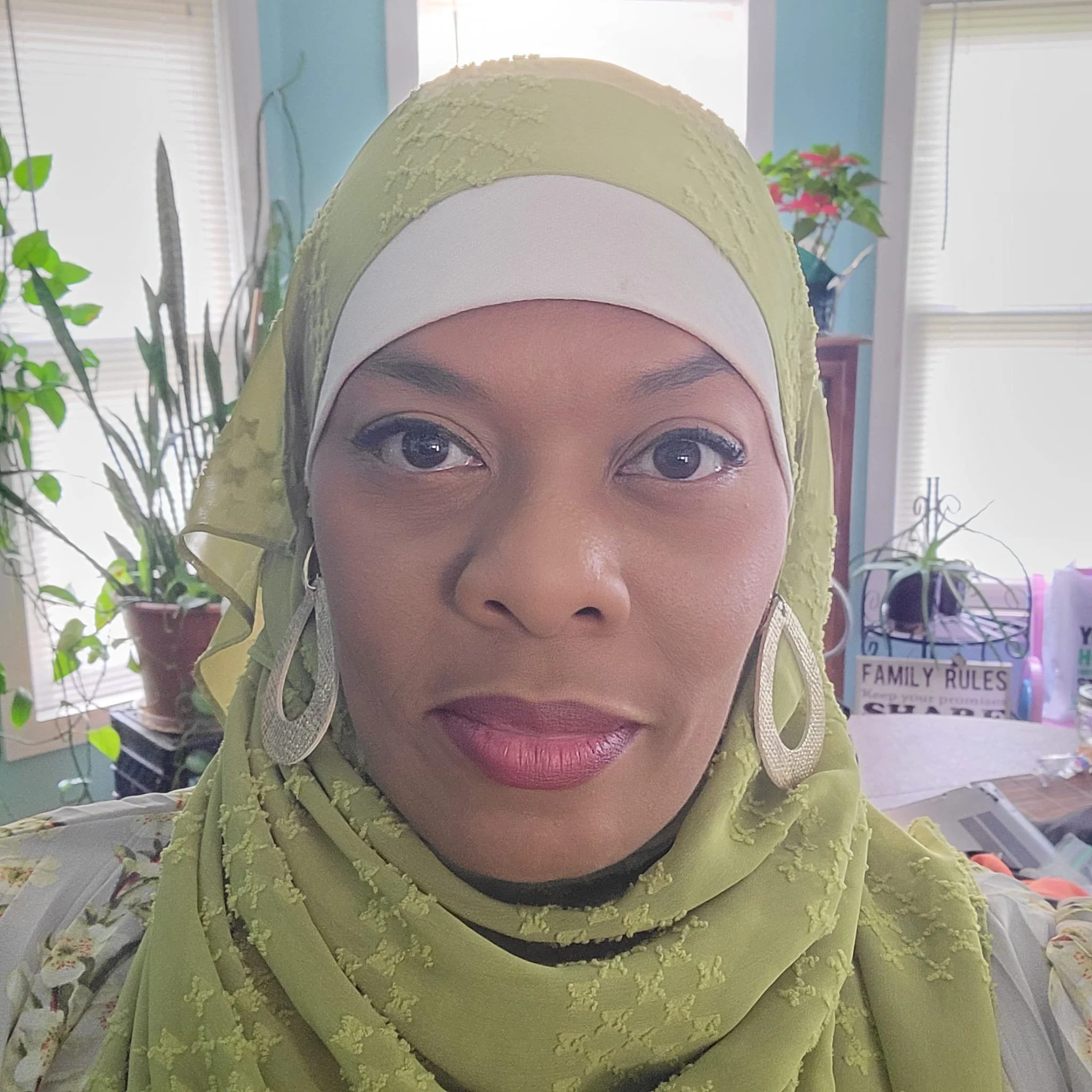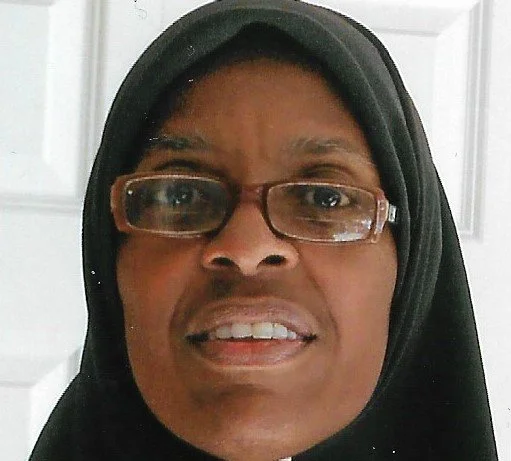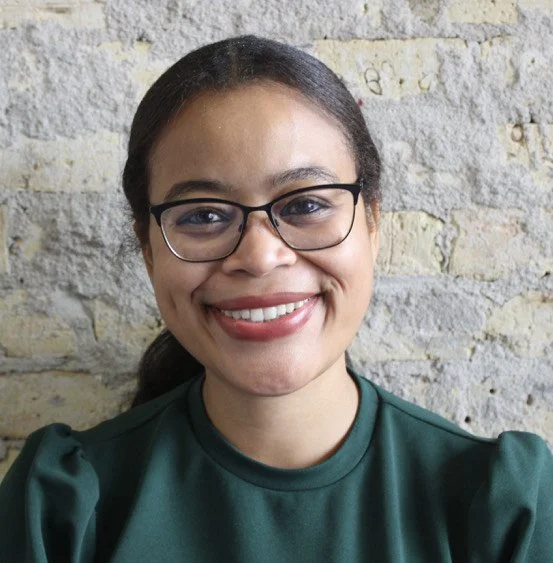All that I know about community care and community service is what I learned from the example of my grandparents and my parents. They taught me that we each have a duty to use our particular talents in service of our people. Since my grandfather was a chef in the navy and my grandmother was a kitchen manager for a nursing home, a major part of their contribution to the community was cooking. They would spend hours in the kitchen preparing meals to give away.
Read MoreMy father taught me to believe that the only real chains are in our minds, and when I went to college at San Francisco State University, I pursued child psychology because I wanted to help break these chains. I took all my general education courses in Black studies, which meant that whether I was studying economics or public health or literature, the curriculum centered the Black community in the U.S. These classes reaffirmed all the lessons that my father had imparted and reinforced my understanding, empathy, and love for my people. Then I started to ask myself, if this is who we are in spite of white supremacy, who would we be outside of an oppressive system? Who could we become?
Read MoreAs an African American Muslim woman, I love uplifting the history of my people, whether it’s at Rabata or in my Qur’an classes or in community spaces. Ethiopia is the first place that Muslims went to seek safety, and Islam spread from there. It’s not a new religion—it’s been solidly established in Africa since its inception.
Read MoreAt that time, the Nation was called the Lost Found Nation of Islam. As I learned more about our history from Imam Muhammad and other teachers and ministers, I realized how fitting a name that was. When we were brought to this country as enslaved people, everything was stripped from us, down to our names. We were a lost people. But through the Nation, we could rediscover our culture, our people, our power. We could remake ourselves and remake the world
Read MoreI know that all of my pain is nothing compared to what those in Gaza are going through. And what they are telling us is that even more than money or food, what they need from us is our voices. I consider it my privilege and my responsibility to raise my voice figuratively and literally. You’ll often find me unable to speak the day after a protest because I’m the one hyping up the crowd and leading chants.
Read MoreI said enough–
of the hecklers and the haters and the
flicked fingers and the Bibi defenders and
the hey hey’s and the ho ho’s and the
occupation that never seems to go because
Genocide Joe–
cares about all the hostages but
the ones in the Open Air Prison.
Yet, beyond the hospital's embrace, I encountered a jarring contrast — a world where compassion intertwined with insensitivity. Friends and family rallied around me, offering the strength to carry out the burial and janazah [funeral prayer] for my precious Asiya Meriam. Their presence during the janazah and the tender care they provided were a lifeline, but the aftermath of my daughter's passing revealed a disparity within my community. Opinions and judgments echoed, casting a shadow on my grief.
Read MoreWhen Muslim women are empowered with the knowledge, confidence, and safe space that they need to become healthier, our entire communities become healthier. As activists, mothers, scholars, aunties, and community leaders, women play critical roles in caring for our communities. When we take care of ourselves, we can uplift all those around us.
Read MoreI’ve never met another Muslim or Bangladeshi woman in this role, so I take my responsibility as a representative of my identities and my culture very seriously. When I studied film, I set out to make stories that people like me can relate to. When a director wants to make their narrative about how Islam oppresses women, for example, I consider it my responsibility to speak up and call out the stereotypes that harm our communities. There’s a misconception that Muslim women don’t have a say, but my voice is always the loudest in any room.
Read MoreMy lived experience has instilled in me a commitment to proudly writing my own story while encouraging others to own their stories. I have been held back by the system, and I know that others like me have been dismissed in classrooms and educational settings. This work is deeply personal because I know that I can use my mental health training, coaching experience, principal training, and doctorate in education to make education work for every student, family, teacher, building administrator, and district staff.
Read More“The year was 2006, I was a newlywed, and I found myself staring at a positive pregnancy test. Just the previous week I had received a letter congratulating me on my acceptance into podiatric medical school. I was going to be a doctor…or was I? As I sat there staring at my positive pregnancy test and my acceptance letter, I wondered if I could actually do both.”
Read More“Whenever I feel too tired, when I feel weighed down by the day’s indignities, when being a Black Muslim woman living in the United States feels like a perpetual fight between a desire to simply live—a desire for my people to simply live—and the ideologies and structures aimed at eradicating us, when I feel like I am not doing enough, when I feel my uncomplicated love for my people is not enough to keep on keeping on, when I feel hopeless, I think about Dr. Betty Shabazz and feel strengthened by her example.”
Read More“Being the first Black Muslim woman elected to the school board in 2020 and elected as the Chair of the Board in 2023 is another victory for our community. When it gets difficult, I find motivation and hope in my faith. I remind myself that Allah (swt) would never put a burden on me greater than I can bear. My daily prayer is that He guides me and leads my words and my actions. I find myself thinking about the legacy of powerful Muslim women who overcame challenges and our ancestors and pioneers who fought for future generations to make life better for us. I have a duty to continue to carry the baton and make it better for those who come after me.”
Read More“This country, even though its history is drenched in the blood of African Americans, would like us to feel as if we had no history of our own. And when it comes to the Muslim community, some think of Islam as an Arab religion or an immigrant religion. But I don’t see a conflict between my traditions, my lifestyle, and my faith. If Allah had wanted, He could have made us all the same, but I think that Islam is meant to dignify us in our own skins.”
Read MoreWhen I was a child, the month before Ramadan, my immigrant parents would sit at the kitchen table with my sister and me to discuss how our family could give back. They would tell us about a family relative back in India who could use our help. Maybe it was for something critical, like surgery; or something invaluable, like education; or something practical, like a sewing machine! My working-class family’s support was not extravagant, but we did what we could. This experience taught me that, even as a child, I had the power to make a transformational difference in others’ lives.
Read MoreI think about the women in places like India and France, who are not allowed to wear their hijabs, and the women in Iran who are forced to. My heart goes out to Mahsa Amini, a 22-year-old Kurdish Iranian who was murdered by “morality police” on September 16 of this year for wearing her hijab in a way they deemed improper. The women in these countries are facing opposite restrictions but fighting the same fight for their freedom to choose. Even so, the news of women in Iran being forced to wear hijab sparked a much fiercer fire in the Western world than the women who were forced not to.
Read MoreWe know our community wants to know more about our recent leadership transition, so we sat down with Nausheena and Malika to talk about transitioning leadership with community trust, support, and love.
Read MoreReflecting on dominant discourse around Muslim women, we realized that the narrative did not reflect our realities. Stories about our sisters amounted to stereotypes of Muslim women as victims or Muslim women as villains and terrorists. Why did the headlines read “Terrorists hiding in hijabs” and not “Dr. Mona Minkara becomes first blind Muslim woman chemist in U.S.”?
Read MoreWhen I think about women in business, I always go back to the Muslim leader Khadija Radia Allah Anha. She was the first wife of the Prophet (peace be upon him) as well as a successful businesswoman who controlled one of the most important caravan trades in her time. She was knowledgeable, respected, and business-savvy. Although there were many obstacles for women business owners during that time, Khadija shows us that achieving financial independence and self-sustenance is a real possibility.
Read MoreOstensibly, tax laws and tax incentives were created so that the wealthy would have agency in their charitable giving and, hopefully, increase it. But is that really what’s happening? Are billionaires actually giving more? And in my own position of relative privilege, how can I leverage these laws and incentives to benefit my community?
Read More



















